I’ve been on a mission to find the perfect shampoo bar, chasing that sweet spot of clean, healthy hair without the environmental guilt of plastic bottles.
Yao Secret and Viori, two brands inspired by the Red Yao tribe’s ancient rice water rituals, caught my attention with their promises of luscious locks and ethical practices.
In this article, I’ll break down my experience with both, weighing their pros and cons, comparing key features, and sharing what worked (and what didn’t) for my hair. You’ll get a clear picture to decide which bar deserves a spot in your shower.
A Brief Comparison Table
| Feature | Yao Secret | Viori |
| Key Ingredient | Longsheng rice water | Longsheng rice water |
| Price (Shampoo Bar) | $12–$15 | $18 (or $10.80 with subscription) |
| Scents | Limited (e.g., unscented, lavender) | Wide variety (e.g., Citrus Yao, Terrace Garden, Whisky-Infused) |
| Packaging | Plastic-free, biodegradable paper | Plastic-free, biodegradable paper |
| Lather Quality | Moderate, requires more effort | Excellent, rich and quick lather |
| Hair Types | All hair types, focus on sensitive scalp | All hair types, specialized formulas |
| Ethical Practices | Pays Red Yao fairly, no profit share | Pays 2x market price, 5% profit share |
| Availability | Limited, mostly online | Widely available (Sephora, Amazon) |
| Longevity | 40–50 washes | 50–60 washes |
| Certifications | Vegan, cruelty-free | Vegan, cruelty-free, B-Corp, Fair Trade |
My Journey With Shampoo Bars
Switching to shampoo bars felt like a bold move. I’d spent years relying on liquid shampoos, pouring them from plastic bottles that piled up in my recycling bin. But the promise of eco-friendly, sustainable hair care pulled me in.
Yao Secret and Viori stood out because of their connection to the Red Yao tribe, a community in China’s Longsheng mountains known for ankle-length, jet-black hair that defies graying.
Their secret? Longsheng rice water, packed with nutrients like inositol and amino acids that supposedly strengthen and shine up your strands. I was intrigued, skeptical, and ready to test both brands to see if they lived up to the hype.
Yao Secret: The Underdog with a Quiet Charm
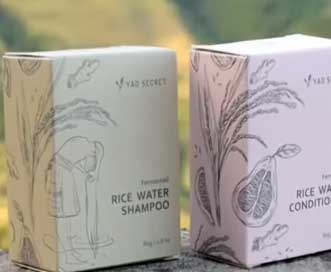
Yao Secret entered the scene as a newer player, and I’ll admit, I was curious about how it stacked up against the more established Viori.
The brand markets itself as a tribute to the Red Yao’s hair care rituals, focusing on natural ingredients and minimal environmental impact.
I picked up their unscented shampoo bar for $12, a steal compared to other premium bars, and gave it a go.
Pros of Yao Secret
The first thing I noticed was the simplicity. Yao Secret keeps it straightforward: Longsheng rice water, cocoa butter, shea butter, and a few essential oils. No sulfates, parabens, or phthalates, which was a relief for my sensitive scalp.
The biodegradable paper packaging, with its subtle embossed design, felt like opening a thoughtful gift. It’s vegan and cruelty-free, aligning with my goal to support ethical brands.
For my fine, wavy hair, Yao Secret delivered a gentle cleanse. It didn’t strip my strands or leave them squeaky, which I appreciated since my hair can feel parched after washing. The bar left my hair soft and manageable, though not dramatically shinier.
I also liked that it’s formulated with sensitive scalps in mind—my scalp felt calm, with no itchiness or irritation after weeks of use. At 40–50 washes per bar, it’s cost-effective, especially for budget-conscious folks like me who still want quality.
Cons of Yao Secret
But it wasn’t all smooth sailing. The lather was a letdown. I had to rub the bar vigorously in my hands to get enough suds, and even then, it felt thin compared to other bars I’ve tried.
This made washing my hair take longer, which isn’t ideal when I’m rushing in the morning. The scent options were also limited—unscented or lavender, and that’s about it. If you love variety or crave a vibrant fragrance, Yao Secret might feel underwhelming.
Availability was another hurdle. I could only find Yao Secret online, and shipping took longer than expected.
The brand’s transparency about their Red Yao partnership was vague; they mention paying fair prices for rice but don’t share specifics like profit donations or long-term community support.
This left me questioning their ethical commitment compared to Viori’s more detailed claims. Lastly, while my hair felt clean, I didn’t notice any significant improvements in growth or strength after a month, which tempered my expectations.
Viori: The Polished Performer
Viori’s reputation precedes it. Sold at Sephora and Amazon, it’s the shampoo bar equivalent of a celebrity with a cult following.
I opted for their Citrus Yao shampoo bar ($18, though I snagged it for $10.80 with a subscription discount) and dove into the experience, eager to see if it justified the buzz.
Pros of Viori
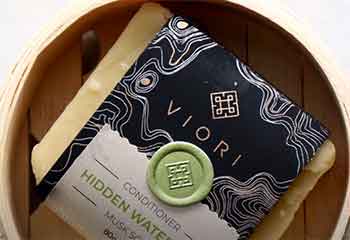
Viori’s lather is a game-changer. Within seconds of rubbing the bar, I had a rich, foamy lather that made washing my hair feel luxurious.
The Citrus Yao scent—a zesty blend of grapefruit, mandarin, and orange—was uplifting and lingered subtly on my hair for hours.
Viori offers a dizzying array of scents, from floral Terrace Garden to whisky-infused bars for men, so there’s something for everyone.
The bar’s embossed mooncake design and recyclable paper packaging added a touch of elegance to my shower routine.
Performance-wise, Viori delivered. My hair felt cleaner, shinier, and slightly more voluminous after each wash. The Longsheng rice water, combined with ingredients like hydrolyzed rice protein and bamboo extract, seemed to give my strands a boost.
I noticed less breakage, especially around my ends, which are prone to splitting from heat styling. Viori’s ethical stance also impressed me: they pay double the market price for Red Yao rice and donate 5% of profits to support the tribe’s education and sustainability projects. Certifications like B-Corp and Fair Trade added credibility to their claims.
Cons of Viori
But Viori isn’t flawless. The $18 price tag per bar stung, especially since I needed both shampoo and conditioner to get the full effect. While the subscription discount helped, it’s still a premium product.
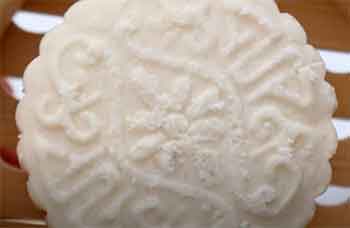
Some users, including me, experienced a transition period when switching from liquid shampoos.
My hair felt slightly waxy for the first week, likely as it adjusted to the new formula. This faded, but it was annoying at first.
I also had mixed feelings about Viori’s marketing.
Their heavy focus on the Red Yao’s “exotic” traditions felt a bit like a white-savior narrative, especially since the brand was founded by non-Yao individuals.
While their partnership seems genuine, the emphasis on the tribe’s “ancient secrets” can come off as overly romanticized. Additionally, a few online reviews mentioned hair loss or dandruff, though I didn’t experience this myself.
The lack of ingredient transparency for their “fragrance” component was another red flag—those with sensitive scalps might want to stick to their unscented option.
Head-to-Head Comparison of Yao Secret And Viori Shampoo Bars
Let’s break down the core differences that shaped my experience with Yao Secret and Viori.
- Ingredients and Formulas
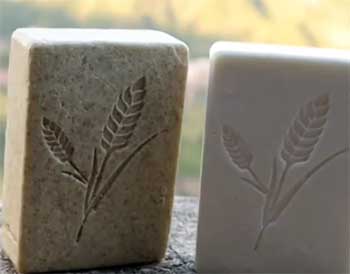
Both brands lean heavily on Longsheng rice water, which is rich in inositol, amino acids, and vitamins B and E, known for strengthening hair and adding shine.
Yao Secret keeps its ingredient list minimal, focusing on cocoa butter, shea butter, and aloe vera for hydration.
Viori goes a step further, incorporating hydrolyzed rice protein, bamboo extract, and broccoli seed oil for added volume and repair.
Viori’s formulas are more specialized, with bars tailored for oily, dry, or color-treated hair, while Yao Secret takes a one-size-fits-all approach with a nod to sensitive scalps.
- Scent and Variety
Viori wins hands-down for variety. With 13 scent options, including Citrus Yao, Tea Tree Mint, and Purple Toning for blondes, there’s a bar for every mood and hair type.
Yao Secret’s limited unscented and lavender options felt restrictive, especially since the lavender scent was barely noticeable post-rinse. If you love experimenting with scents or want a bar that matches your hair’s specific needs, Viori’s range is hard to beat.
- Lather and Ease of Use
Viori’s lather is the star of the show—rich, creamy, and quick to form. It made washing my hair feel effortless, even on days when my hard water tried to sabotage things. Yao Secret’s lather, by contrast, was lackluster.
I had to work harder to get enough suds, and the bar felt denser, almost like it resisted softening under water. For busy mornings, Viori’s ease of use was a lifesaver.
- Ethical Practices
Ethics matter to me, and both brands claim to honor the Red Yao tribe. Yao Secret mentions paying fair prices for rice but lacks details on community impact or profit-sharing. Viori is more transparent, stating they pay double the market price and donate 5% of profits to Red Yao projects like education and ecological sustainability.
Their B-Corp and Fair Trade certifications give them an edge, though the 5% profit share feels modest for a brand built on the tribe’s traditions. Neither brand feels exploitative, but Viori’s efforts are better documented.
- Longevity and Value
Viori’s bars last slightly longer, averaging 50–60 washes compared to Yao Secret’s 40–50. However, Yao Secret’s lower price point ($12–$15 vs. Viori’s $18) makes it more budget-friendly upfront.
Viori’s subscription model drops the price significantly, which tipped the scales in its favor for me over time. Both are cost-effective compared to liquid shampoos, especially since they cut out plastic waste.
- Hair Results
After six weeks with each, Viori edged out Yao Secret for my hair. Viori’s Citrus Yao bar left my waves shinier, bouncier, and less prone to breakage. I didn’t notice significant growth, but my ends looked healthier.
Yao Secret kept my scalp happy and my hair clean, but the results were less dramatic—no extra shine or volume. For someone with sensitive skin, Yao Secret might be enough, but Viori’s formulas felt more transformative.
My Experience With Yao Secret And Viori Shampoo Bars
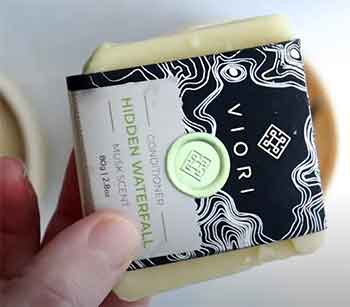
I tested both bars in my daily routine, using them exclusively for six weeks each.
My hair is fine, wavy, and color-treated, with a scalp that flares up if I use harsh products.
I live in an area with hard water, which can make shampoo bars tricky, so I was diligent about rinsing thoroughly and using a microfiber towel to dry gently.
With Yao Secret, I liked the gentle cleanse and lack of irritation, but the effort to lather was a chore. My hair felt clean but not particularly vibrant, and I missed having scent options to mix things up.
Viori, on the other hand, was a joy to use. The lather was instant, the citrus scent woke me up, and my hair looked noticeably shinier after a few washes. The transition period was a minor hiccup, but once my hair adjusted, I was hooked.
I also appreciated Viori’s wider availability—grabbing a bar from Sephora was easier than hunting down Yao Secret online.
One thing I noticed: Viori’s conditioner bar paired better with its shampoo, creating a silky finish that Yao Secret’s conditioner couldn’t match. Yao Secret’s conditioner felt lightweight but didn’t detangle as well, leaving my ends a bit knotty. If you’re going all-in on bars, Viori’s shampoo-conditioner duo feels more cohesive.
Who Should Choose What?
Yao Secret is a solid pick if you’re on a budget, have a sensitive scalp, or prefer a minimalist approach. It’s gentle, eco-friendly, and gets the job done without fuss, but don’t expect fireworks in terms of shine or volume.
It’s ideal for someone easing into shampoo bars or prioritizing affordability over variety.
Viori is the better choice if you want a premium experience with noticeable results. Its rich lather, diverse scents, and specialized formulas make it a standout for most hair types, especially if you’re after volume or repair.
The ethical certifications and subscription savings sweeten the deal, though the higher upfront cost might give you pause.
Addressing The Hype: Hair Growth And Graying Claims
Both brands lean into the Red Yao’s reputation for long, jet-black hair, hinting at growth and anti-graying benefits. I was skeptical, as hair growth is influenced by genetics, diet, and lifestyle more than any shampoo.
After my trials, I saw no new growth spurts with either brand, though Viori’s strengthening ingredients reduced breakage, making my hair look fuller.
As for graying, there’s no scientific evidence that rice water prevents it, despite Viori’s website showcasing elderly Red Yao women with dark hair. It’s likely a mix of genetics and lifestyle, not a shampoo bar miracle.
- Sustainability and Packaging
Both brands shine in sustainability. Their plastic-free, biodegradable paper packaging aligns with my zero-waste goals. Viori’s packaging feels more polished, with intricate designs that make it gift-worthy, while Yao Secret’s simpler wrapping still gets the job done.
Neither includes plastic, and both bars are compact, making them travel-friendly. Viori’s bamboo holder, sold separately, was a nice idea but molded quickly without proper care, so I skipped it after one try.
- The Ethical Question
The Red Yao connection is central to both brands, but it’s worth scrutinizing. Yao Secret’s lack of transparency about their partnership left me uneasy—fair pay is great, but how does it impact the community long-term?
Viori’s 5% profit donation and double rice payments feel more substantial, though some critics argue it’s still a small cut for a brand built on Yao traditions. Both avoid overt cultural appropriation, but Viori’s marketing can feel overly exoticized, which might rub some the wrong way.
Frequently Asked Questions (FAQ)
Viori’s Longsheng rice water contains inositol and amino acids that may strengthen hair and reduce breakage, but there’s no definitive evidence it promotes growth. My hair felt healthier, but I didn’t see new growth.
It depends on your needs. Viori’s Citrus Yao is my pick for its lather, scent variety, and shine, but Yao Secret is great for sensitive scalps on a budget.
Viori appears ethical, paying double for Red Yao rice and donating 5% of profits to the tribe. Their B-Corp and Fair Trade certifications add credibility, though some question the profit share’s scale.
Viori was founded by Bryce F., Chase Sagum, Ezra Kwong, Lynsie Galbraith, and Jacob van Langen in 2019, inspired by their time with the Red Yao tribe.
Wrapping Up
After weeks of testing Yao Secret and Viori, I’ve got a clear winner for my hair: Viori. Its rich lather, vibrant scents, and noticeable shine make it a joy to use, though the price and transition period might give you pause.
Yao Secret is a budget-friendly, gentle option, perfect if you’re sensitive or just dipping your toes into shampoo bars. Both brands deliver on sustainability, but Viori’s ethical edge and performance make it my go-to.
You can’t go wrong with either, but choose based on your hair’s needs and your values. Try one, and let your hair decide!
